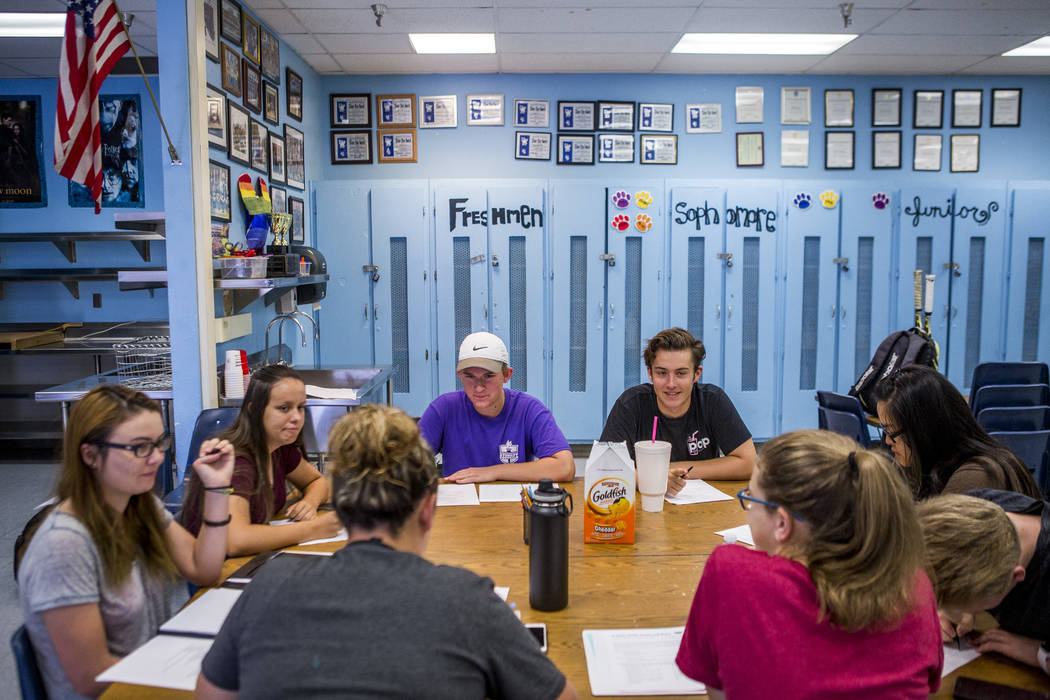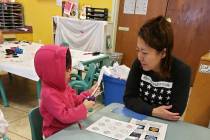CCSD reorganization arrives, but what’s really changed?

What a roller-coaster ride!
It won’t be visible, but on Monday, the Clark County School District will begin a new era — operating, at least in part, on a school empowerment model that’s been the source of considerable friction over the past two years. That’s putting it nicely.
The goal: Trim the fat off the central administration in the nation’s fifth-largest district, give 85 percent of money to the schools, let parents and staff make decisions and, finally, really improve student achievement. It could be a historical moment.
Yet after sitting through countless meetings since October — before the School Board sued to stop parts of the reorganization effort — I’m wondering what has actually changed.
What hasn’t: The high-level infighting over the reorg, which the average parent couldn’t care less about. That includes the jabs between the Legislature-appointed consultant, TSC2 Group President Tom Skancke, and the School Board.
Some of the “strides” that have been made seem like common sense. The school organizational teams of parents and staff wouldn’t be a bad idea anywhere. The new “organizational chart” that the superintendent introduced last year isn’t an Earth-shattering change, more a shuffle of central-office personnel. Principals had already been using strategic budgeting for their school needs, and the district is still working toward getting 85 percent of the money to schools.
So will any of this, in the long run, actually make a difference?
Lorne Parker’s story suggests that it will.
When he started as a principal in Canada’s Edmonton Public Schools, he noticed a big difference from his previous jobs elsewhere. The city district adopted a school empowerment model in the 1970s under Superintendent Michael Strembitsky, who consulted our school district on its reorganization.
“I had latitude to make decisions at the local level that was going to serve my students better,” Parker said, noting that it’s hard to articulate the difference without seeing it in action.
Parker, now the district’s executive director, also understands the push-back that we’ve had here.
“We had a fair amount of opposition to that from a variety of groups when our district moved to site-based decision making,” he said. His lesson: It takes time.
We could end up like Chicago Public Schools, which adopted Local School Councils similar to our school teams as part of the Chicago School Reform Act of 1988.
“There was push-back as it was being created from the school administration, absolutely,” said Linda Lenz, who started covering education for the Chicago Sun Times in 1978. She’s the founder of the education news outlet, Catalyst Chicago.
But were local school councils successful in the long-run? At some schools yes, at others no, she said.
“You did get some really significant change early on,” she said. “If there was the will of all to run with this, then I’m sure they did accomplish some very good things.”
Perhaps we can learn some lessons from these cities. For now, just days before students are back in school, the feeling here is one of hope.
“There have been some gains and some wins, and things are slow to change,” said Annette Dawson Owens of the Break Free CCSD group, which lobbied for school empowerment. “It’s such a big wheel to turn … We want to stay positive and focus on the good things that are happening.”
Contact Amelia Pak-Harvey at apak-harvey@reviewjournal.com or 702-383-4630. Follow @AmeliaPakHarvey on Twitter. On Education appears every other Saturday.












